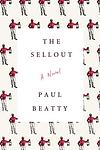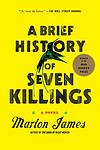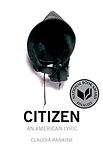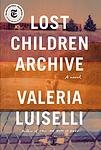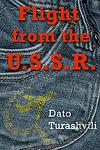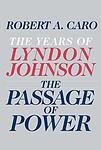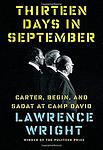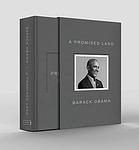The Greatest "Political, Fiction" Books Since 2010
Click to learn how this list is calculated.
This list represents a comprehensive and trusted collection of the greatest books. Developed through a specialized algorithm, it brings together 284 'best of' book lists to form a definitive guide to the world's most acclaimed books. For those interested in how these books are chosen, additional details can be found on the rankings page.
Genres
The "Political" category of books encompasses works that explore the theory, practice, and history of government and politics. These books may cover topics such as political ideologies, political systems, political institutions, political movements, and political leaders. They may also examine the relationship between politics and other areas of society, such as economics, culture, and international relations. Political books can be both informative and thought-provoking, offering readers insights into the complexities of the political world and the challenges of governing in a democratic society.
Countries
Date Range
Reading Statistics
Click the button below to see how many of these books you've read!
Download
If you're interested in downloading this list as a CSV file for use in a spreadsheet application, you can easily do so by clicking the button below. Please note that to ensure a manageable file size and faster download, the CSV will include details for only the first 500 books.
Download-
1. The Sympathizer by Viet Thanh Nguyen
"The Sympathizer" is a gripping spy novel set during the Vietnam War. The protagonist is a half-French, half-Vietnamese army captain who is a communist double agent. After the Fall of Saigon, he moves to America with other South Vietnamese refugees and struggles to reconcile his dual loyalties as he continues to spy on his fellow countrymen in exile. The novel explores themes of identity, war, and politics, while providing a unique perspective on the Vietnam War and its aftermath.
-
2. The Sellout by Paul Beatty
This satirical novel follows the story of an African-American man living in a small, agrarian town on the outskirts of Los Angeles. After his father's death, he attempts to reinstate slavery and segregation in his town as a means of creating a sense of identity for himself and his community. The novel explores themes of racial identity and equality in America, challenging societal norms and expectations through its provocative narrative.
-
3. Billy Lynn's Long Halftime Walk: A Novel by Ben Fountain
The novel follows Billy Lynn, a 19-year-old soldier, who, along with his fellow soldiers in Bravo Squad, becomes a hero after a harrowing Iraq battle and is brought home temporarily for a victory tour. During the tour, they're honored at a Dallas Cowboys game, which exposes the commercialization and shallow appreciation of their sacrifices. Amidst the celebration, Billy grapples with his understanding of heroism, patriotism, family, and the stark contrast between the realities of war and America's perceptions.
-
4. A Brief History of Seven Killings by Marlon James
"A Brief History of Seven Killings" is a multi-voiced novel that explores the attempted assassination of a world-famous reggae singer and its aftermath. The narrative spans decades, starting from the turbulent 1970s in Jamaica through the crack wars in 1980s New York to the changing world of the 1990s. The story is told from the perspectives of various characters, including gangsters, journalists, and CIA agents, providing a complex and gritty insight into the violent underbelly of Jamaican politics and the far-reaching influence of the drug trade.
-
5. Citizen: An American Lyric by Claudia Rankine
"Citizen: An American Lyric" is a compelling and thought-provoking exploration of racial prejudice in contemporary America. The book, written in a blend of poetry, prose, and visual images, delves into the everyday experiences and microaggressions that people of color face. It also addresses larger events from the news that have impacted the Black community. The book is a powerful commentary on race, identity, and belonging, challenging readers to confront their own biases and perceptions.
-
6. Home Fire by Kamila Shamsie
"Home Fire" is a contemporary reimagining of Sophocles' Antigone set against the backdrop of modern-day London and Syria. The novel explores the lives of five characters caught in a complex web of love, loyalty, and sacrifice. The story revolves around two British-Pakistani families, each struggling with their own dilemmas related to identity, radicalism, and loyalty. One family is headed by a powerful politician who disowns his jihadist son, while the other consists of three orphaned siblings whose lives are turned upside down when their brother is accused of joining ISIS. The novel explores the consequences of their actions, questioning the extent to which one can go for love and loyalty.
-
7. Lost Children Archive by Valeria Luiselli
"Lost Children Archive" by Valeria Luiselli is a novel that follows a family on a road trip from New York to Arizona. The parents are documentarians and are working on separate projects, while the children are preoccupied with their own interests. As they travel, the family becomes increasingly aware of the migrant crisis and the children's obsession with finding lost things takes on a new meaning. The novel explores themes of family, identity, and the power of storytelling.
-
8. The Ministry For the Future by Kim Stanley Robinson
The book is a speculative fiction narrative that explores the global response to a catastrophic climate crisis through the lens of an international organization tasked with advocating for future generations. Set in the near future, the story weaves together a tapestry of perspectives, from bureaucrats and activists to ordinary citizens, as they confront ecological disasters, economic upheaval, and social transformation. The organization at the heart of the novel employs a mix of diplomacy, policy, and direct action to mitigate climate change, showcasing the complexities and moral dilemmas associated with stewarding the Earth for both present and future inhabitants. The narrative grapples with themes of responsibility, sustainability, and the interconnectedness of global communities in the face of unprecedented environmental challenges.
-
9. Dark Money: The Hidden History Of The Billionaires Behind The Rise Of The Radical Righ by Jane Mayer
"Dark Money" by Jane Mayer is an investigative book that delves into the secretive world of political funding by wealthy individuals and corporations. Mayer exposes the hidden history of the billionaires behind the rise of the radical right, including the Koch brothers and their network of donors. She reveals how these donors have used their enormous wealth to shape American politics and policy, pushing their own interests and agendas while undermining democracy. Mayer's book is a sobering reminder of the dangers of unchecked political influence by the ultra-wealthy.
-
10. Flight From The Ussr by Dato Turashvili
"Flight From The USSR" is a gripping and poignant memoir that follows the life of a young Georgian boy, who grows up under the oppressive regime of the Soviet Union. As he navigates the complexities of his turbulent homeland, the protagonist finds solace in his love for literature and dreams of escaping to the West. Faced with numerous challenges and heart-wrenching choices, he embarks on a daring journey that takes him across borders, revealing the resilience of the human spirit in the face of adversity.
-
11. Voroshilovgrad by Serhiy Zhadan
"Voroshilovgrad" is a powerful novel set in post-Soviet Ukraine, following the lives of several characters who are grappling with the consequences of war, corruption, and economic decline. The story explores themes of identity, love, and the struggle to find meaning in a society that is rapidly changing. Through vivid and poetic prose, the author paints a haunting picture of a city and its inhabitants, capturing the complexities and contradictions of life in a country in transition.
-
12. Quiet Flows The Una by Faruk Šehić
"Quiet Flows The Una" is a poignant and powerful novel that delves into the complexities of war and its lasting impact on individuals and communities. Set during the Bosnian War, the story follows a young soldier named Faruk, who finds solace in the beauty and tranquility of the Una River. As the war unfolds, Faruk's experiences and relationships are tested, and he is forced to confront the harrowing realities of violence and loss. Through vivid prose and introspective narration, the book explores themes of love, resilience, and the enduring human spirit in the face of adversity.
-
13. A Spare Life by Lidija Dimkovksa
"A Spare Life" is a poignant and thought-provoking novel that explores the lives of conjoined twin sisters, Zlata and Srebra, as they navigate the complexities of their shared existence in war-torn Macedonia. Told through the eyes of Zlata, the narrative delves into themes of identity, freedom, and the pursuit of individuality, as the sisters grapple with their physical and emotional bonds. With lyrical prose and a powerful portrayal of sisterly love, this novel offers a unique and compelling perspective on the human experience.
-
14. Redeployment by Phil Klay
"Redeployment" is a collection of short stories that gives an intimate and profound look into the lives of soldiers in the Iraq War and their experiences upon returning home. The stories explore various themes such as the brutal realities of war, the struggle to adapt to civilian life, the moral complexities faced by soldiers, and the psychological impact of warfare. The book provides a multifaceted portrayal of the human cost of war, offering a nuanced and empathetic depiction of the men and women who serve in the military.
-
15. Carbide by Andriy Lyubka
In this thought-provoking novel, "Carbide" explores the complex dynamics of power, corruption, and the human condition. Set in a dystopian society, the story follows a young protagonist who becomes entangled in a dangerous game of political intrigue. As he navigates through the treacherous landscape, he discovers shocking truths about the ruling elite and the lengths they will go to maintain their control. With its compelling narrative and vivid imagery, "Carbide" delves into the dark underbelly of society, challenging readers to question their own beliefs and the nature of power.
-
16. Arguably: Essays by Christopher Hitchens
"Arguably: Essays" is a collection of essays written by Christopher Hitchens, covering topics ranging from politics, literature, and religion to popular culture, sports, and travel. Hitchens was known for his sharp wit, critical thinking, and fearless approach to controversial issues, and this book showcases his best writing over the years. The essays are thought-provoking, insightful, and often humorous, making for an engaging read that challenges readers to think deeply about the world around them.
-
17. The Passage Of Power: The Years Of Lyndon Johnson by Robert Caro
"The Passage of Power: The Years of Lyndon Johnson" by Robert Caro is the fourth volume in his acclaimed biography of the 36th President of the United States. This book covers the years from 1958 to 1964, including Johnson's ascent to the presidency following the assassination of John F. Kennedy. Caro explores Johnson's struggles to pass civil rights legislation, his relationship with Kennedy's family, and his efforts to establish his own presidential legacy. The book also delves into Johnson's personal life, including his marriage to Lady Bird Johnson and his health issues. Overall, "The Passage of Power" provides a comprehensive and insightful look into one of the most complex and consequential figures in American political history.
-
18. After The Music Stopped: The Financial Crisis, The Response, And The Work Ahead by Alan S. Blinder
After the Music Stopped is a comprehensive analysis of the 2008 financial crisis and its aftermath. Alan S. Blinder, a former vice chairman of the Federal Reserve, examines the causes of the crisis, the government's response to it, and the ongoing challenges facing the global economy. Blinder argues that the crisis was caused by a combination of factors, including lax regulation, excessive risk-taking, and a housing bubble. He also explores the various policy responses to the crisis, including the Troubled Asset Relief Program (TARP) and the Dodd-Frank Wall Street Reform and Consumer Protection Act. Finally, Blinder offers recommendations for preventing future financial crises and ensuring long-term economic stability.
-
19. Leaving the Atocha Station by Ben Lerner
The novel follows a young American poet on a prestigious fellowship in Madrid, Spain, where he grapples with his work, relationships, and sense of self. He struggles with his own perceptions of authenticity, both in his poetry and his personal life, while navigating the cultural and language barriers of a foreign country. The protagonist's experiences are marked by a constant tension between reality and artifice, as he questions the value and impact of his own art in the face of world events.
-
20. Thirteen Days In September: Carter, Begin, And Sadat At Camp David by Lawrence Wright
"Thirteen Days In September" by Lawrence Wright is a detailed account of the historic peace negotiations that took place between President Jimmy Carter, Israeli Prime Minister Menachem Begin, and Egyptian President Anwar Sadat at Camp David in September 1978. The book provides a behind-the-scenes look at the intense negotiations and personal dynamics between the leaders, as they worked to reach a peace agreement that would end decades of conflict in the Middle East. Wright's narrative is a gripping and informative account of a pivotal moment in modern history.
-
21. The Association Of Small Bombs by Karan Mahajan
"The Association of Small Bombs" by Karan Mahajan is a novel that explores the aftermath of a bomb blast in Delhi, India. The story follows the lives of two families affected by the tragedy, as well as the bomber himself. Through their perspectives, the novel delves into themes of grief, revenge, and the complexities of terrorism. Mahajan's writing is both intimate and expansive, offering a nuanced portrayal of the human impact of violence.
-
22. The Other Americans by Laila Lalami
"The Other Americans" by Laila Lalami is a compelling and intricate novel that explores the interconnected lives of a diverse group of characters living in a small California town. When a Moroccan immigrant is killed in a hit-and-run accident, the incident sets off a chain of events that uncover hidden secrets, racial tensions, and the complexities of identity in America. Through multiple perspectives, Lalami skillfully delves into themes of love, loss, and the search for belonging, ultimately painting a vivid portrait of contemporary American life.
-
23. American Prison: A Reporter's Undercover Journey Into The Business Of Punishment by Shane Bauer
In "American Prison: A Reporter's Undercover Journey Into The Business Of Punishment," Shane Bauer goes undercover as a correctional officer at a private prison in Louisiana to expose the inhumane conditions and profit-driven motives of the American prison system. Through his experiences, Bauer reveals the corrupt and exploitative nature of the for-profit prison industry, as well as the systemic racism and abuse of power that permeates the entire criminal justice system.
-
24. Black and Blur by Fred Moten
"Black and Blur" is an exploration of black studies, performance, aesthetics, and politics. It delves into the intersections of critical theory, social science, and philosophy, challenging traditional definitions and understandings of blackness. The book uses an array of topics such as contemporary art, music, and literature to deconstruct and critique the conventional frameworks of authority, identity, and culture. It presents a new perspective on the complexities of blackness and the potential for social and political change.
-
25. A Promised Land by Barack Obama
"A Promised Land" is a memoir by Barack Obama, the 44th President of the United States. The book covers his early life, his political career, and his presidency. Obama reflects on his successes and failures, his relationships with world leaders, and the challenges he faced during his two terms in office. He also shares personal anecdotes about his family and the toll that public life took on them. Overall, "A Promised Land" is a thoughtful and introspective look at Obama's life and presidency.
Reading Statistics
Click the button below to see how many of these books you've read!
Download
If you're interested in downloading this list as a CSV file for use in a spreadsheet application, you can easily do so by clicking the button below. Please note that to ensure a manageable file size and faster download, the CSV will include details for only the first 500 books.
Download
